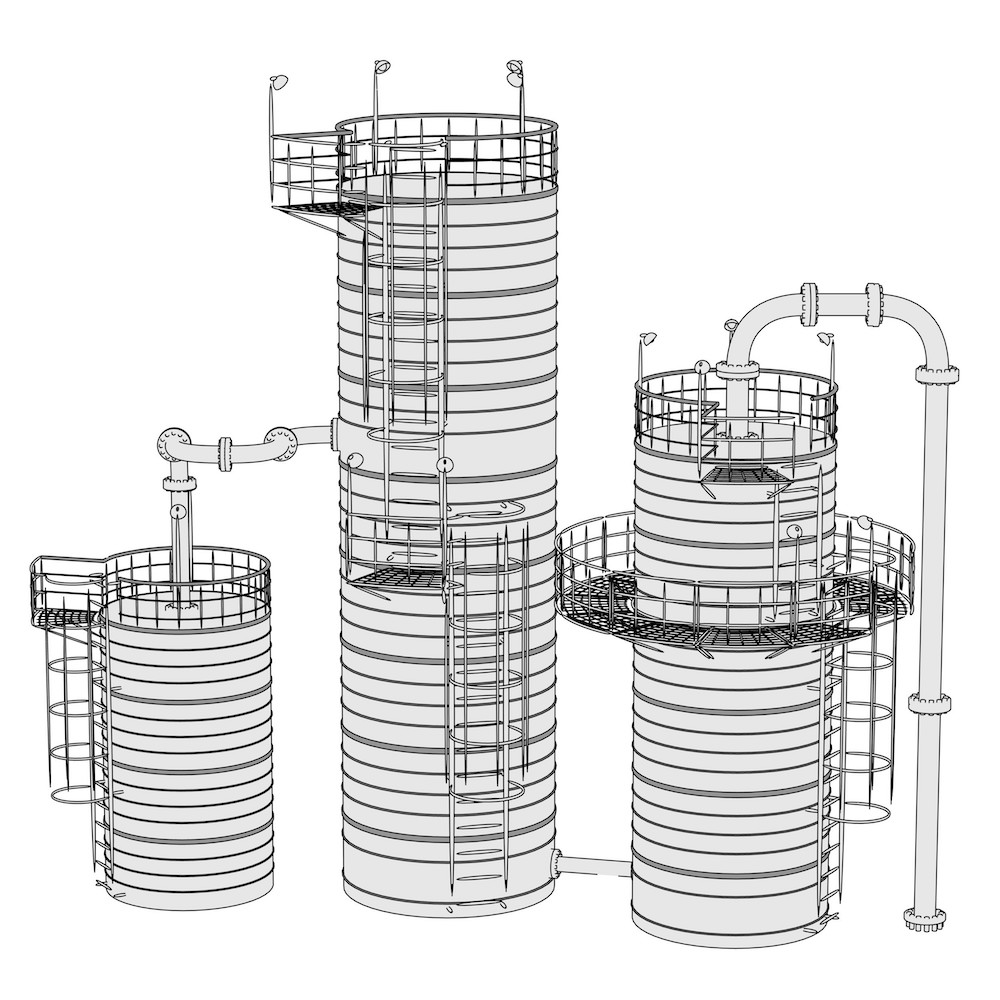(…or True Confessions from Operating a CatCracker)

The following tips are taken during an FCC group discussion at RefComm® Galveston. We thought our FCCU operators would appreciate learning about what other Catcracker operators think is most important in the FCCU.
“The inlet to the fractionator was clogging from coke in the transfer line. We used a reflux line of naphtha to clean it.”
Backstory: The inlet to the Main Column Fractionator (MCF) was plugging from coke causing a significant high pressure drop into the column, resulting in a reduction in feedrate. A temporary solution was to use FCC cracked naphtha as a flush to the transfer line. A startup vent tap on the outlet from the reactor transfer line was available for a temporary tie-in. This worked to reduce the MCF inlet pressure drop. All of the liquid FCC naphtha did not vaporize in the transfer line and could be heard “gurgling” in transfer line bends. Once the liquid reached the MCF flash zone it vaporized and helped in fractionation. At the next planned shutdown a permanent installation was made to inject FCC naphtha in the transfer line closer the MFC inlet.

Other Lessons Learned from the FCC Field:
“Doing routine duties is not punishment. If you didn’t have a routine, you don’t have a baseline.”
“We need to transfer to a new operator what is good baseline data so they have a reference point.”
“When the unit process engineer gets promoted, make sure he passes on project info.”
“I didn’t follow recommendations when loading catalyst. Pretty soon I got a call that there was catalyst in the heater. The morale of the story goes: ‘follow procedures!’”
“Perform a full catalyst balance at a minimum on a monthly basis, and more frequently (weekly) for larger units. Take advantage of the services offered by your catalyst supplier (Ecat and slurry analysis).”
“Optimizing catalyst properties can have a very big impact on unit profitability. Work with your catalyst supplier to optimize the properties and performance.”
“Monitor movement, for example if something moves only 2”, but usually it’s 3”, then investigate.”
Do you want to stay current on FCCU trends? Visit www.RefComm.com for more information.
One response to “Tried & True Tips From FCC Operators”
Leave a Reply
You must be logged in to post a comment.








Great advise.